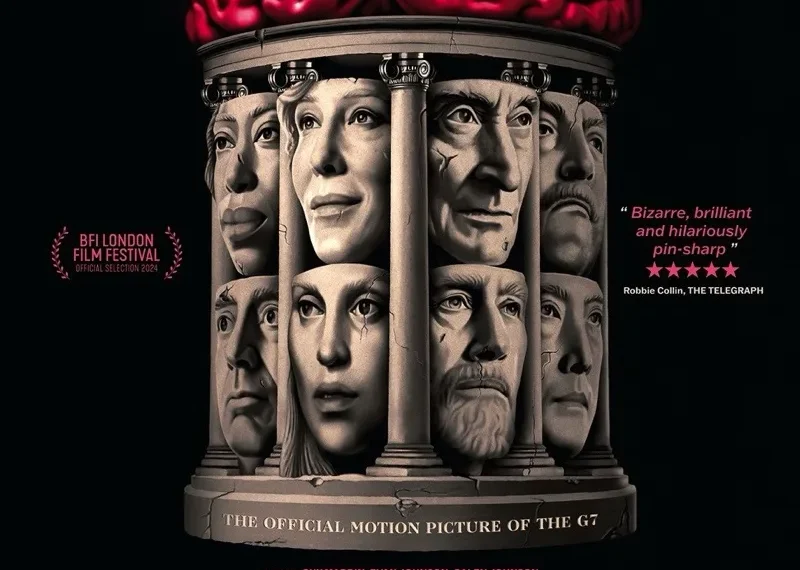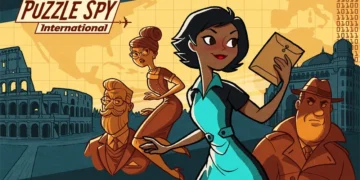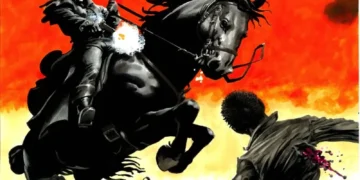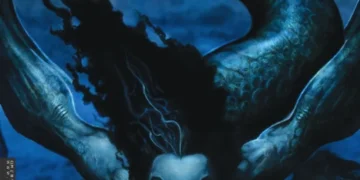Reviewed on May 18th at the 2024 Cannes Film Festival – Competition. 104 Mins
Cast: Nikki Amuka-Bird, Cate Blanchett, Denis Ménochet, Takehiro Hira, Alicia Vikander, Charles Dance, Zlatko Buric, Roy Dupuis, Rolando Ravello
Genre: Comedy, Drama, Horror
Directors: Evan Johnson, Galen Johnson and Guy Maddin
In Irish Cinemas: 6th December 2024
Throughout his prolific solo career and recent collaborations with his brothers, Evan and Galen Johnson, Canadian filmmaker Guy Maddin has crafted some of the most eccentric and imaginative works in the nebulous realm of cult cinema. From the kaleidoscopic portmanteau The Forbidden Room to The Green Fog, a jigsaw-like “remake” of Hitchcock’s Vertigo, Maddin has long delighted in subverting cinematic conventions. However, his latest venture with the Johnsons, a pulp-horror political satire titled Rumours, takes a dramatic detour from his previous oeuvre. While hints of Maddin’s cinephile sensibilities remain, this film is a startling departure, fusing apocalyptic absurdity with biting satire.
Rumours is a chaotic and bizarre concoction, blending political farce with nightmarish horror. Imagine a hybrid of Dr. Strangelove, Buñuel’s The Exterminating Angel, and Night of the Living Dead. Adding to its intrigue is a prestigious international cast, led by Cate Blanchett and Charles Dance, with a wonderfully offbeat supporting turn by Alicia Vikander. Together, they dive headfirst into the midnight movie lunacy with gusto.

The film’s sardonic tone is signalled immediately, with opening credits in a font that cheekily mimics Wes Anderson’s signature style. Set in Germany at the imposing Dankerode Castle, Rumours centres on a G7 summit hosted by the suave German president Hilda Ortmann (played with a mischievous charm by Blanchett). Representing the other nations is a diverse and deliberately exaggerated lineup: Charles Dance as a crusty, aristocratic U.S. envoy; Denis Ménochet as a boisterous French diplomat; Roy Dupuis as Canada’s heartbreakingly dashing prime minister; Nikki Amuka-Bird as a no-nonsense British leader; Rolando Ravello as a fiery Italian representative; and Takehiro Hira as Japan’s enigmatic emissary. One running gag is the casting of Dance—a quintessentially British actor—as the U.S. delegate, complete with a peppery, unmistakably English demeanour. Another is Dupuis’s portrayal of Canada’s Maxime Laplace as a smouldering romantic grappling with emotional turmoil.

Initially, proceedings unfold with farcical decorum. The delegates gather in a picturesque lakeside pavilion for a formal dinner, tasked with drafting a Provisional Statement to address an unspecified global crisis. But their work is quickly derailed by misunderstandings, petty rivalries, and simmering sexual tensions. Maxime and the British PM Cardosa Dewindt (Amuka-Bird) share a fraught romantic history, while Hilda appears eager to comfort the brooding Canadian leader. Meanwhile, archaeologists unearth an Iron Age bog mummy on the castle grounds, a discovery that ominously coincides with strange occurrences. When Ménochet’s French delegate stumbles into the excavation pit, the narrative takes an eerie turn, complete with atmospheric black-and-white inserts reminiscent of 1940s and 1950s horror cinema.

Scripted by Evan Johnson from a story by the directors, Rumours is most potent in its opening acts, where the characters’ quirks play off one another against the absurd backdrop of hollow diplomatic doublespeak. As tensions escalate, the group ventures into the surrounding forest in search of assistance, encountering bizarre phenomena—including a giant pulsating brain presided over by the European Commission’s Secretary General (a wonderfully surreal turn by Vikander). While the middle section lags as the characters trudge through the night, the film regains its footing with a climactic twist involving a mysterious distress signal that may not be what it seems.

Much like Jim Jarmusch’s The Dead Don’t Die, Rumours thrives on its offbeat blend of sophisticated satire and pulpy horror, though it occasionally struggles to balance its disparate tones. The film doesn’t fully capitalise on the juxtaposition of undead mayhem with high-level diplomacy, but its appeal lies in its playful irreverence and committed performances. The ensemble cast gleefully leans into national stereotypes, with standout turns from Blanchett, who brings a sly mix of flirtation and bureaucratic polish, and Dance, whose seasoned gravitas lends a sharp edge to his droll, world-weary diplomat. Ménochet, too, shines as a gregarious, wine-swilling bon vivant.

Visually, Rumours is a feast. Stefan Ciupek’s cinematography layers the proceedings with a thick, moody ambience, while Kristian Eidnes Andersen’s eclectic score blends original compositions with unexpected selections from Sibelius, Rachmaninov, and British library composer Alan Hawkshaw—plus an enigmatic splash of Enya. Combined with the film’s audaciously bizarre premise, these elements create a rich, unsettling texture that lingers even when the narrative falters.

In the end, Rumours is a singularly strange entry in Maddin’s filmography. It offers a darkly comic critique of power and ego against supernatural dread. Although it may not fully cohere, its inventive spirit and committed cast ensure it remains an unforgettable cinematic experiment.
Overall: 5/10


















